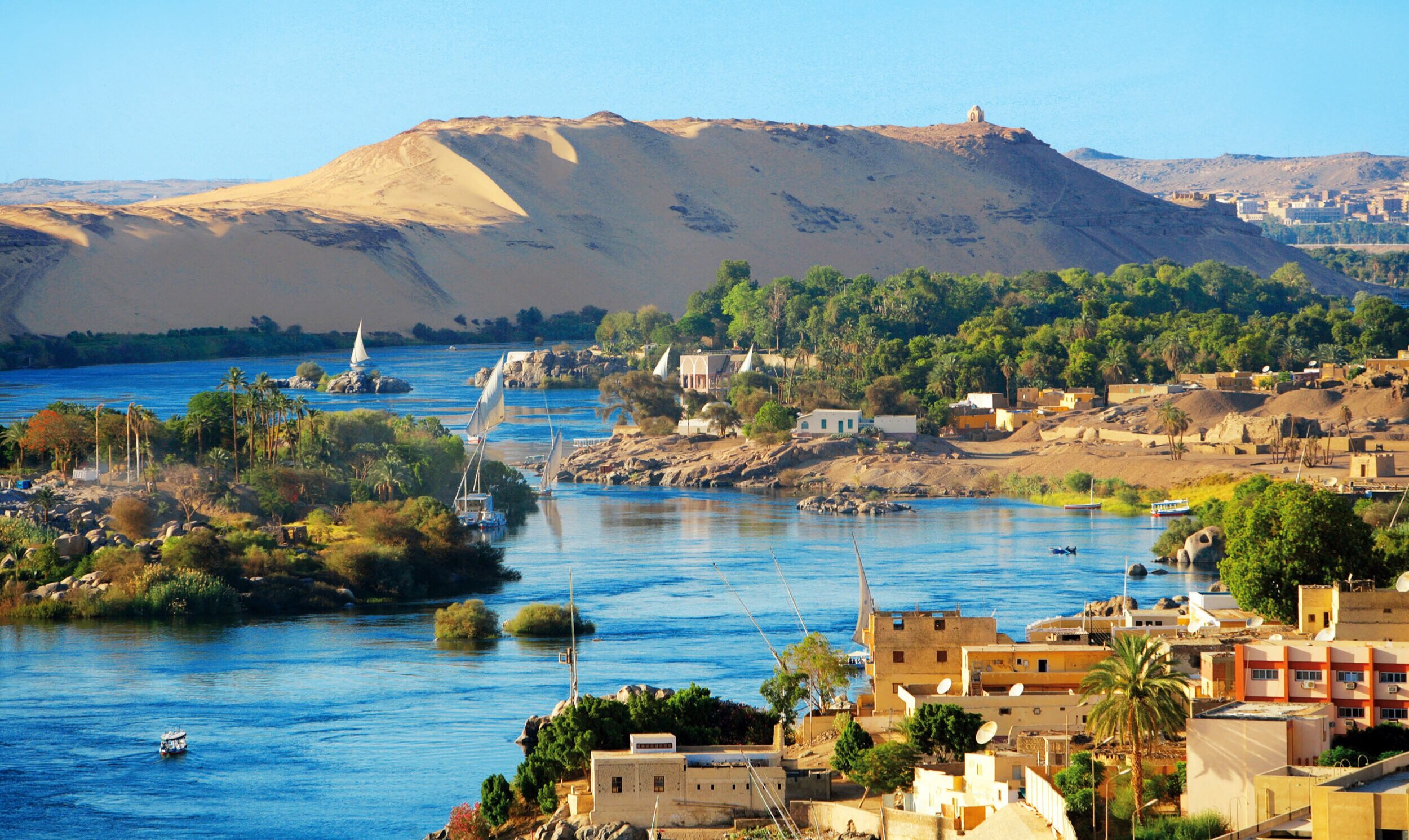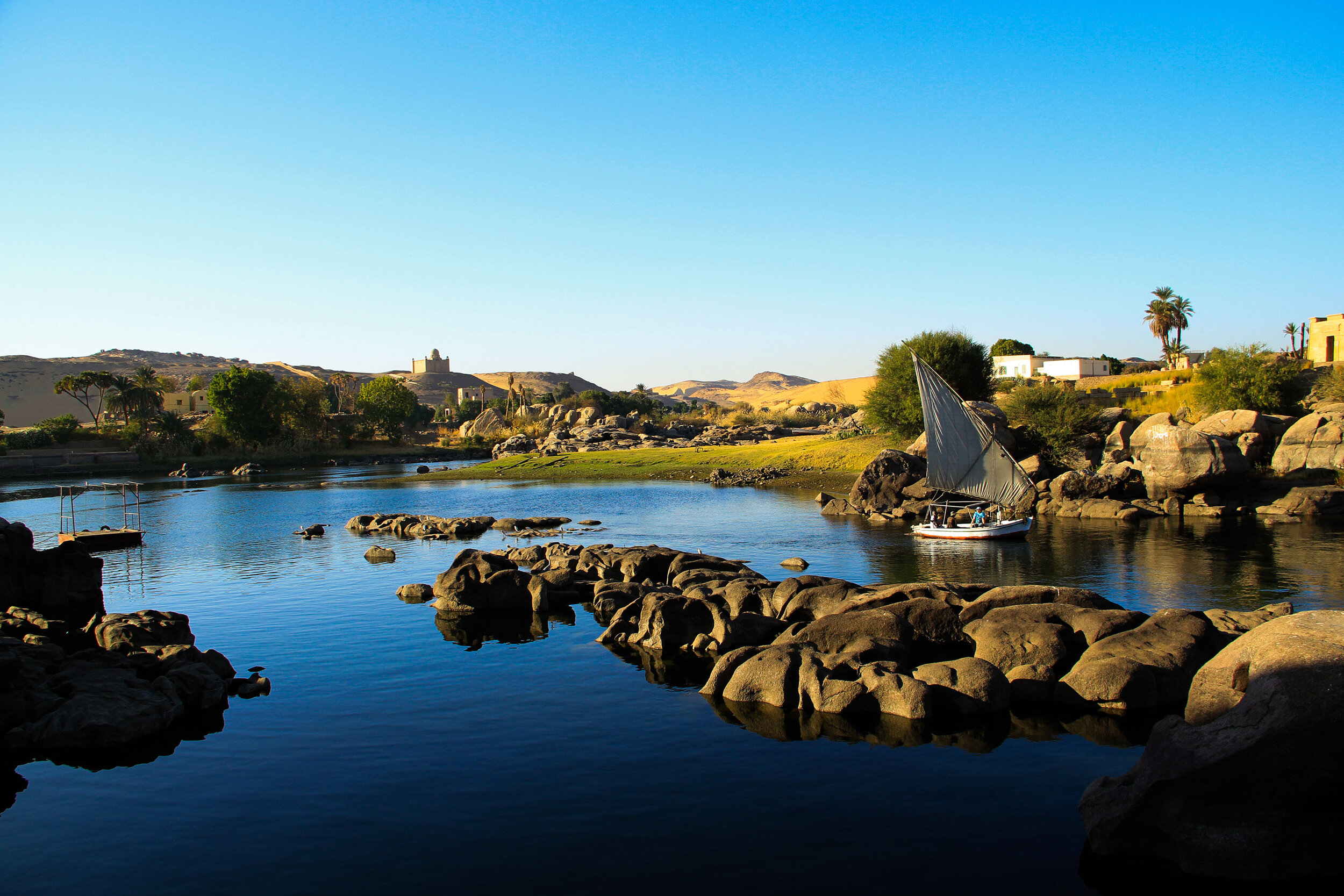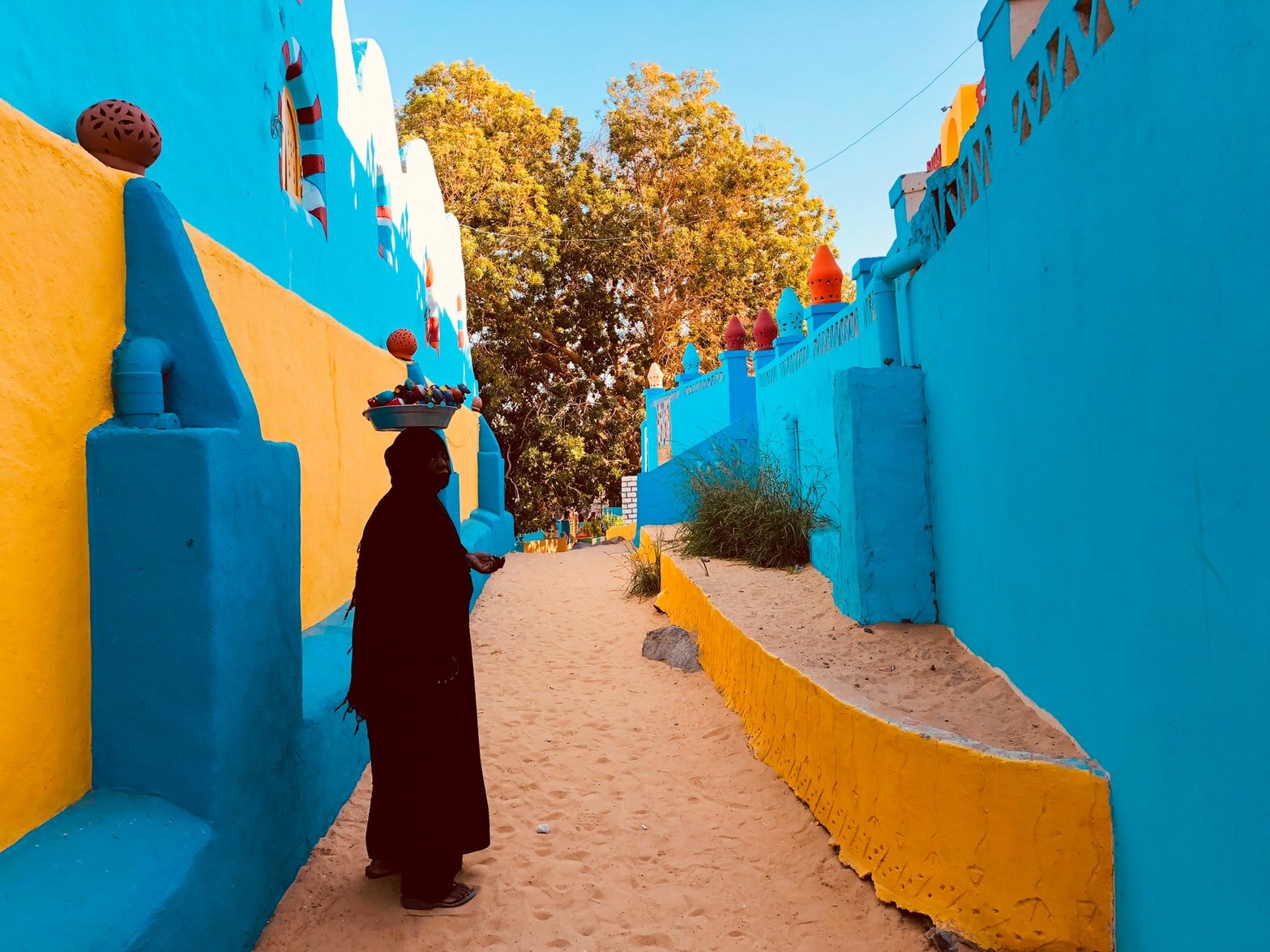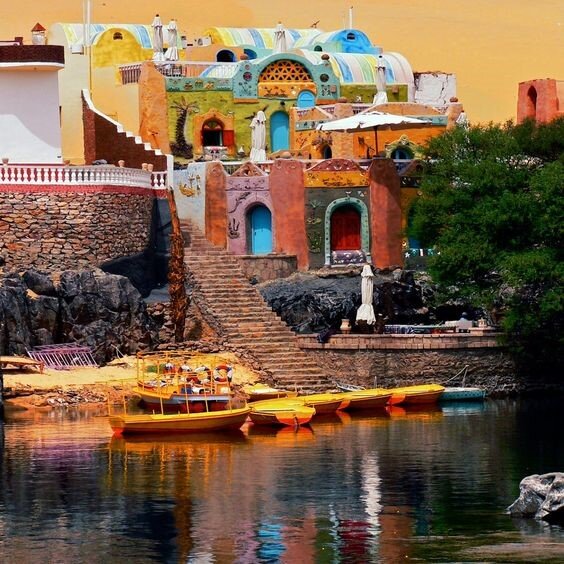ASWAN “Ancient City of Syene”




The ancient city of Syene and known to the modern world as Aswan, the city is located to the north of Aswan Dam and Lake Nasser, about 425 miles south of Cairo. It was ancient Egypt’s gateway to Africa and is part of the UNESCO Creative Cities Network.
The River Nile is said to be in its most glorious form in Aswan – flowing through the majestic desert and granite rocks, with a backdrop of green tropical plants. Aswan’s local quarries supplied granite for many ancient Egyptian monuments and are still functional. Being famous for trade and markets, the souks in Aswan are full of colorful spices, enchanting fragrances, handmade baskets, and vibrant scarves.
The local people of Aswan are a mix of Nubians and Upper Egyptians. At some point in time, the Nubian kingdom used to rule all of Egypt and parts of Sudan - it was called the Kingdom of Kush. One of the most famous leaders of Kush was Piye, who conquered Egypt and became the pharaoh. Today, Aswan has many Nubian villages, as the area is an extension of ancient Nubia, which was flooded by the water of Lake Nasser when the high dam was completed in 1970. Nubians are very friendly and you can visit one of their villages to witness their hospitality and view their colorfully decorated houses.
One of the greatest ancient manmade monuments, the Temple of Abu Simbel, is located around 140 miles southwest of Aswan. It is part of the UNESCO World Heritage Site and was created during the reign of Ramses II and showcases the perfection of craftsmanship. Also explore the ancient god Horus’ Temple of Philae where besides the endless ancient wonders, you can find Napoleon’s inscription. Its mesmerizing Sound and Light show sheds light on legends of goddess Isis and god Osiris.
The largest island in the area, Elephantine Island contains artifacts dating from predynastic times. Close by is the Kitchener’s Island (also known as the El Nabatat Island) which is famous for its Botanical Garden bearing exotic plants that Lord Horatio Kitchener planted in 1916, and they continue to flourish to this day.

